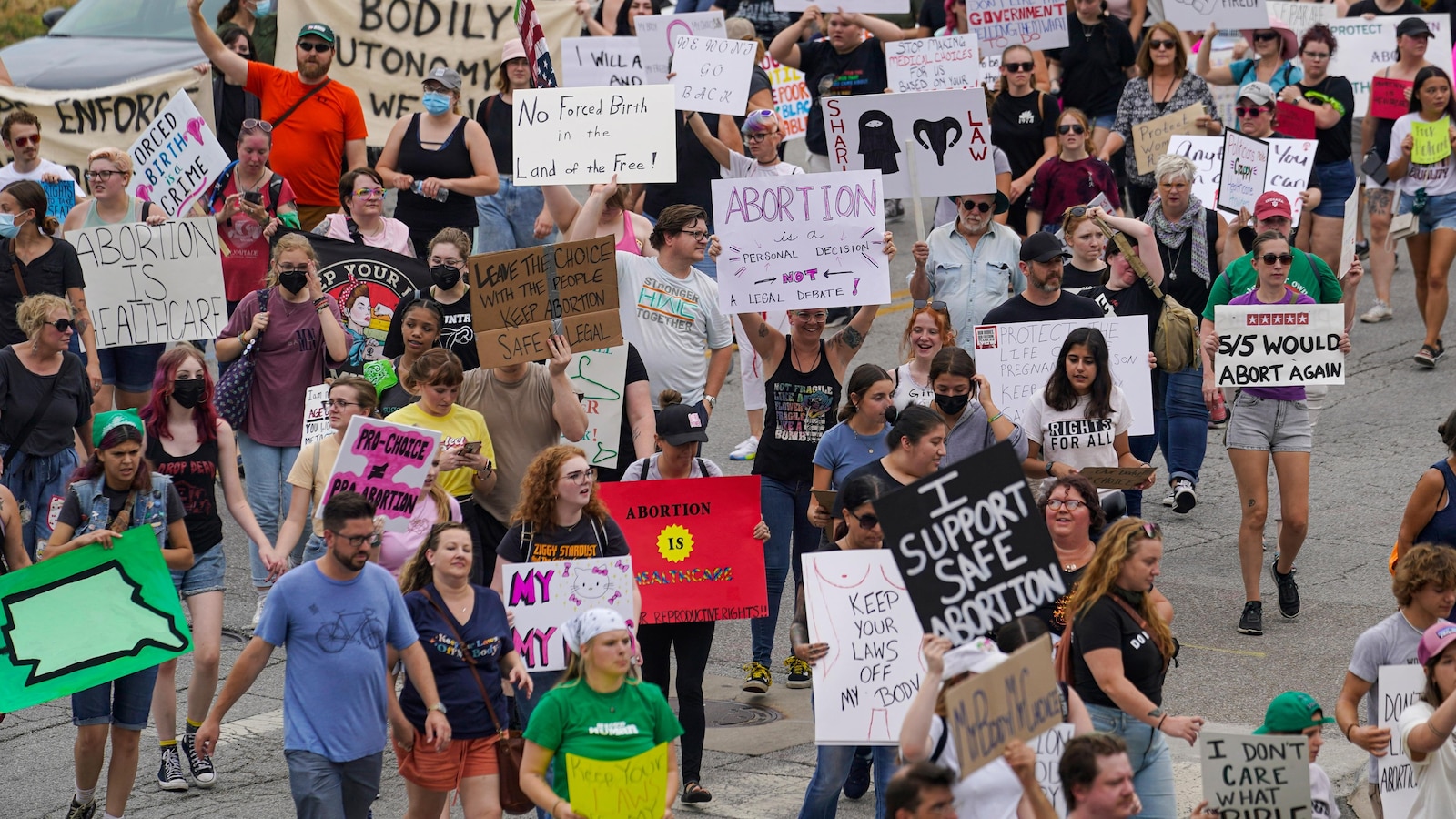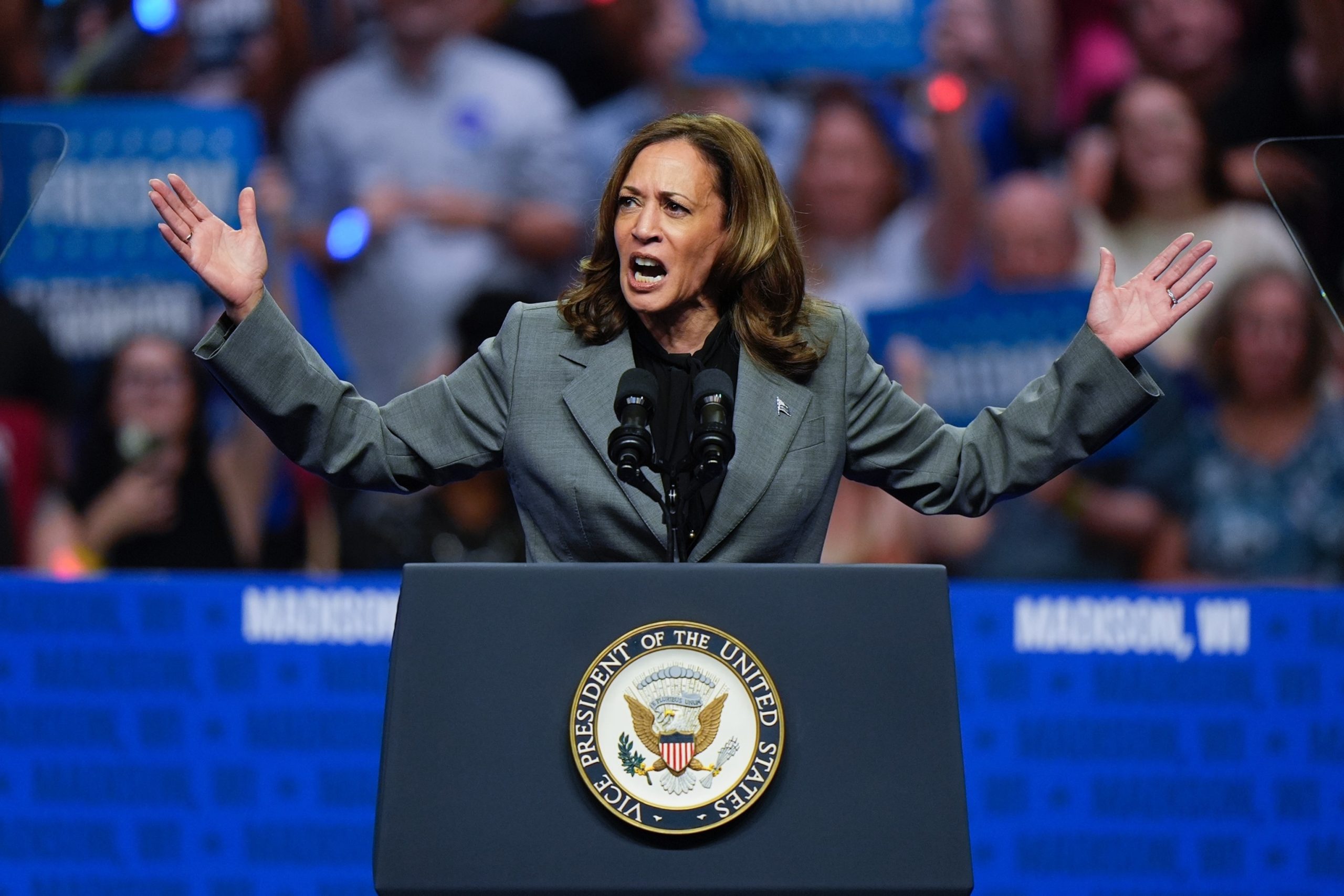
INDIANAPOLIS — Abortion providers are asking an Indiana trial judge this week to broaden access to abortions under the state’s near-total ban.
Indiana law allows for abortion in rare circumstances, including when the health or life of the woman is at risk, but only at a hospital.
Planned Parenthood and other abortion providers are asking a Monroe County judge for a preliminary injunction expanding the medical exemptions and blocking the hospital-only requirement. The bench trial before special Judge Kelsey Blake Hanlon is scheduled for Wednesday through Friday.
The Indiana Supreme Court upheld the ban in June, ending a broader legal challenge brought by the same plaintiffs, but said the state’s constitution protects a women’s right to an abortion when her life or health is at risk.
The plaintiffs say the ban’s exceptions for protecting health are written so narrowly that in practice, many doctors won’t end a pregnancy even when a woman’s condition qualifies under the statute.
According to the complaint, the ban does not account for conditions that may threaten health later in a pregnancy, after giving birth or for conditions that may exacerbate other health problems. The health and life exception allows for an abortion up to 20 weeks into the pregnancy.
The plaintiffs also want women to be able to have abortions if medically indicated for psychological reasons. The current statute explicitly rules out the threat of self harm or suicide as a “serious health risk,” which is another reason why the plaintiffs say the state’s definition is unconstitutional.
“The uncertainty caused by the Health or Life Exception’s confusing definition of serious health risk and threats of licensure penalties and criminal prosecution chill Indiana physicians from providing abortions necessary to protect their patients’ lives and health,” the complaint says.
Only a few hospitals, largely in the Indianapolis area, provide abortions and usually at a higher cost than at clinics, the complaint says. Doctors prescribing medication must observe the woman swallowing the pills, delaying abortions for patients who don’t live nearby.
The state has called the providers’ claims “vague and ambiguous” in court filings, and denied that Indiana infringes on any legal rights.
The challenge was filed in politically liberal Monroe County, home to Indiana University’s main campus, but Democratic judges handed off the case until it landed before Hanlon, a Republican elected in a neighboring conservative county.
Indiana became the first state to enact tighter abortion restrictions after the U.S. Supreme Court ended federal abortion protections by overturning Roe v. Wade in June 2022. The state law also allows exceptions for rape, incest and lethal fetal anomalies in limited circumstances.
Since the ban took effect, abortions in the state have dramatically dropped. According to the latest report from the state health department, 46 abortions were reported in the last three months of 2023, down from 1,724 during the last quarter of 2022.
A separate legal challenge seeks to establish a religious exception to the abortion ban in Indiana. The state attorney general asked the Indiana Supreme Court last week to take up the case after an appeals court sided with four residents and the group Hoosier Jews for Choice in April.
Planned Parenthood, a leading reproductive health organization, is taking legal action in Indiana to challenge the state’s restrictive abortion laws. The organization is seeking to expand the health exception in the state’s abortion ban, which currently only allows for abortions in cases of life endangerment or severe physical health complications.
The lawsuit, filed by Planned Parenthood of Indiana and Kentucky (PPINK), argues that the current law is unconstitutional and puts women’s health at risk by not allowing for abortions in cases where a woman’s mental health is at risk or when there are fetal anomalies detected. The organization believes that these restrictions violate the Supreme Court’s ruling in Roe v. Wade, which protects a woman’s right to choose to have an abortion.
According to PPINK, the lack of a broad health exception in Indiana’s abortion ban forces women to travel out of state to access the care they need, which can be costly and burdensome. This can also delay care and put women’s health at risk.
Planned Parenthood is not alone in its fight against restrictive abortion laws in Indiana. The American Civil Liberties Union (ACLU) of Indiana has also filed a lawsuit challenging the state’s ban on dilation and evacuation abortions, which is the most common method used for second-trimester abortions.
The legal battle over abortion rights in Indiana is part of a larger national debate over reproductive rights. With the recent appointment of conservative justices to the Supreme Court, many states are enacting more restrictive abortion laws in an effort to challenge Roe v. Wade.
Planned Parenthood and other reproductive health organizations are fighting back against these laws, arguing that they infringe on women’s constitutional rights and put their health at risk. The outcome of these legal battles will have far-reaching implications for women’s access to reproductive healthcare across the country.
In the meantime, Planned Parenthood continues to provide essential healthcare services to women in Indiana and beyond, including birth control, STI testing, cancer screenings, and abortion care. The organization remains committed to fighting for women’s rights and ensuring that all women have access to safe and legal abortion care.


